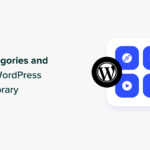One of the most important decisions for a blog is to choose what niche it should occupy. And while your first inclination may be to aimlessly write articles about random topics, that isn’t a good enough strategy. To launch and maintain a successful blog, you need to know your niche well enough to thrive in it. You don’t necessarily need to be an expert, but you do need to have more than a passing familiarity with the subject and a willingness to become an expert over time.
Caveats aside, our primary focus here today will be on how to choose a niche for your blog or business. What follows are six ready-to-implement tips that can help take your blog from a mere journal to a successful arm of your business strategy. Let’s get to it.
1. Brainstorm

Before you begin any new project, it’s always a good idea to get in a good brainstorming session straight away. This allows you to dedicate time to get all your thoughts and first inclinations down on paper. And even if you don’t pursue most of the topics you jot down, it’s a part of the process of narrowing down potential blog niches.
To get started, make a list of topics you’re interested in. Really, it could be anything that has piqued your interest in the past. Think about things you’ve accomplished in the past or jobs you’ve had. Take inspiration from magazines and blogs you read.
You might wish to use a brainstorming tool of some sort during this process. This helps keep your ideas organized and in one place. A simple Google Doc will suffice, but if you need more structure, tools like Trello, Coggle, or MindMup could be super helpful.

Jot your ideas down and once you have a healthy list of options, create a sub-list next to each idea. This is where you’ll take notes on what you think people want to hear about. You can come up with these ideas from the top of your head or do some research to see what people are talking in these niches.
A quick Google search is often all you need to find a solid starting point. Especially pay attention to the “People Also Ask” and related-keywords section of the search results.
2. Know the Market
Once you have a shortlist of potential niches for your blog or business to choose from, you need to conduct some market research. This will tell you what topics are hot and which are oversaturated in your industry. Again, Google is your friend here, as is being familiar with the industry itself. Read the current popular blogs in this niche and ask yourself the following:
- Who is the target audience for this content?
- What types of content are getting the most comments, likes, and shares?
- What areas are being overlooked in the existing available content, in your estimation?
Useful Tools

Beyond googling and doing some introspection, you can also pursue some hard data to fortify your decision-making process. Here are a few tools to consider:
- Pollfish — With this tool, you can create surveys within minutes to ask vital questions of your target audience. You can get a near real-time reaction to your business curiosities. Plus, it even allows you to set screener questions so you can whittle down your survey results to only the surveyors you’re interested in.
- Google Trends — Here, you can get a quick glimpse into what topics are trending all around the world. Plus, when you research a specific subject, you can see what related topics people look for, where in the world this subject is performing the best in search, and more.
- Ubersuggest — This keyword tool makes it much easier to perform competitor research and see which keywords are performing the best for them. It also makes it easier to analyze your competitors’ content and find holes in their coverage. That means a steady stream of new content ideas for your blog.
- Brandwatch — Finally, Brandwatch is another tool well worth investigating. This one uses AI to create a database of public social and web conversations about various brands and topics. You can easily use this information to get a sense of interest in your industry as well as what topics may resonate with your potential audience.
Do Something Unique
A note here on standing out. No, you don’t have to reinvent the wheel when selecting a blogging niche. Certainly, others will have thought to pursue the same space as you. However, very broad topics have thousands of blogs dedicated to them. Therefore, picking a smaller niche that sets you apart can work wonders.
Even so, don’t close yourself off so much that you can never expand your horizons to sub-niches or related subjects. Otherwise, you stand to run out of posts in a few years, and that’s not where you want to be after devoting years to building up an audience and SEO traction.
3. Choose Something Profitable
Once you have a topic in mind, it’s vital that you run it through a few hypotheticals. Is this a niche that could even earn you a profit if you choose to blog about it? The unfortunate reality is that not all popular topics will make you money. Some topics only lend themselves to casual visitors. And even if you build a dedicated following, it might not be a following that spends money.

So, with this in mind, vet your potential niche for its profitability. Can it be used to sell a product? If not a physical product, perhaps you could make an ebook for purchase? Or even an online course? Regardless, it should be a niche that:
- Has plenty of interested people engaged with it
- Has an audience that is willing to spend money on it
- Is capable of being monetized in the first place.
And lastly, make sure your chosen niche doesn’t have too much competition. There should be other blogs out there in your niche – direct competitors. However, not so many that you’ll be dealing with an overcrowded field where a newcomer can’t get established. On the flip side, avoid niches with no competition as well. That indicates a difficult market to break into with no one to collaborate with or draw inspiration from.
4. Write About Something You Know
Now this and the next tip are directly related and should be considered during the brainstorming stage as well, but they warrant their own sections. When you choose a blog niche, pay careful attention to whether or not the niche would have readers expecting special certification from the writer of the content. Think health or law blogs, here.
If you have a degree or awards in a certain niche, this could be something to leverage and write about. It’s also a great way to launch straight out of the gate with an advantage. It means you’re an expert in the field and can offer a unique perspective that your run-of-the-mill blogger wouldn’t be able to offer.

On the other hand, selecting a topic you know nothing about could lead to spreading misinformation and negative feedback as a result. And no one wants to deal with that.
Plus, Google has been putting a lot more emphasis on demonstrated expertise for ranking YMYL (“your money or your life”) pages. Check out our posts on the Search Quality Rating Guidelines and E-A-T algorithm update for more info.
5. Write About Something You Love
Let’s make this plain upfront: if you don’t care about your niche, readers will be as disinterested in reading it as you were writing it. And that’s just the truth.
Besides, why would you want to pick a niche that bores you to tears? You’re much less likely to turn a profit anyway or to even fully engage with a niche if you don’t care about it in some way. It’s a much better idea to pick something that you’re still going to love writing about down the line. Me, I have been writing about WordPress since 2014 and I’m still loving it!
While it’s true that not every niche has profit potential – and your favorite subject in the world might be disqualified at this point – it’s still worth pursuing topics you’re passionate about. Your ingrained interest will show through in your writing. Plus, coming up with post ideas will be much easier (and more intuitive) if you have a baseline level of interest in the subject to start with.
Similarly, don’t pick something so trendy that it will die in less than a year, even if you do find it interesting. It’s a much better idea to pursue trends that show slow and steady growth if you must trend-chase at all.
6. Put it to the Test
Once you have the niche for your business or blog figured out – or at least have your selections boiled down to 2-3 options – you can start the real planning phase. That is, you can put your ideas to the test and see what sticks.
The simplest way to accomplish this is to come up with a large list of blog post ideas. Go back to the brainstorming tools you started with at the beginning of this process and start jotting down ideas. If you run into a roadblock right away and can’t think of blog post ideas easily, then this subject is likely not a good one to pursue. After all, if you’re struggling at these early stages, imagine how hard it would be to come up with fresh topics in year three.
If the topic generation process goes smoothly, you can move on to drafting up a few blog posts. How does writing about this topic feel? Is it easy? Do the words flow onto the proverbial page? Or do you struggle a bit?

Of course, if writing isn’t an intuitive process for you in general, how you make an assessment here will vary. But if you find that the topic is boring to write about and research or you’re just not very interested in it after all, you’re probably better off pursuing another topic.
If you find the writing process goes smoothly, however, and you’re able to come up with the structure of your posts and gather research quickly, then your chosen subject could be a winner.
The real burden of proof is born out over time, of course. You will need to show up to write for your blog week after week. Maintaining output and productivity over time is a subject for another day. For now, though, you can set yourself up to have a successful blog by coming up with many blog post topics and writing a few drafts before you make a full commitment to buying a domain name and setting up WordPress.
Which Blog or Business Niche Will You Choose?
Hopefully, by now it’s clear that you need to put a lot of careful thought into the blogging niche you pick . A failure to take the time in the beginning to select a niche that you either know and love or that you have a good familiarity with is a recipe for disaster. Or, really, just a blog that doesn’t do a whole lot for you. And remember: a topic that’s too broad lacks focus but one that’s too narrow can restrict your options.
With a healthy amount of market research on your side and a commitment to trying out your niche before finalizing your pursuits, you greatly increase your chances of succeeding.
How did you choose your blog or business niche? Or, if you haven’t selected one yet, what industry do you want to pursue? Let us know in the comments!











